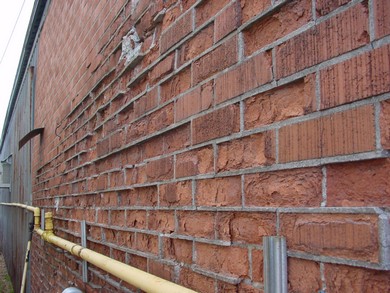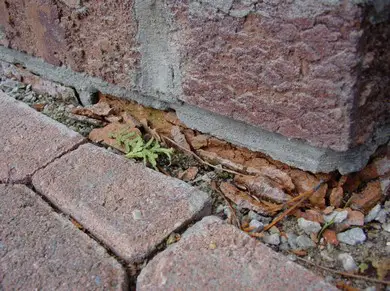
I’m always disappointed when I hear about young brick failing. Brick is expensive and should last for many, many decades. Some brick lasts for centuries, so there’s really no excuse.
When brick does fail in our climate, it almost always comes down to the same thing: moisture. Since water expands when it freezes, any absorbed water held within the brick causes flaking and cracking when temperatures drop below 0º. This condition is called ‘spalling’.
Any design or installation conditions that promote the retention of water within the brick will cause spalling. This could involve all of the things you’ve heard from bricklayers working in your neighbourhood, including the bad brick hypothesis. And from what I’ve seen, this is the most common source of trouble. Even if all else is perfect, an overly  thirsty brick will absorb water and flake.
thirsty brick will absorb water and flake.
When you’re looking for brick to use as a replacement on your house, it’s very important to ask about water absorption and spalling. What’s the track record of the brick? How long has it been manufactured? Is there any written warranty offered on the integrity of the brick? Also, it’s vital that the brick be kept at least 6 inches above grade, with a layer of flashing between the concrete foundation below and the brick above. This prevents water splashing up from the ground, wicking up through the concrete and soaking in to the bricks.